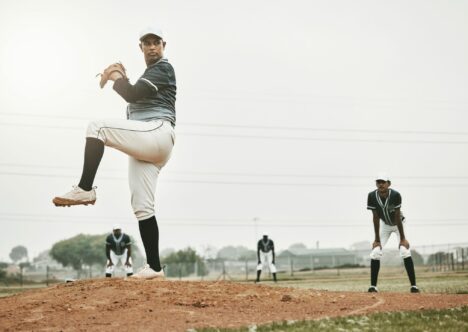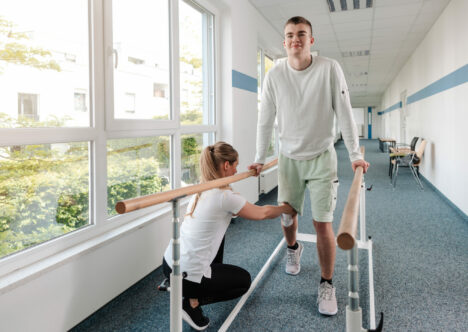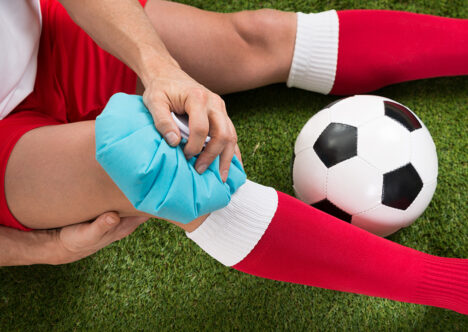Use our convenient online scheduler to book an appointment now.
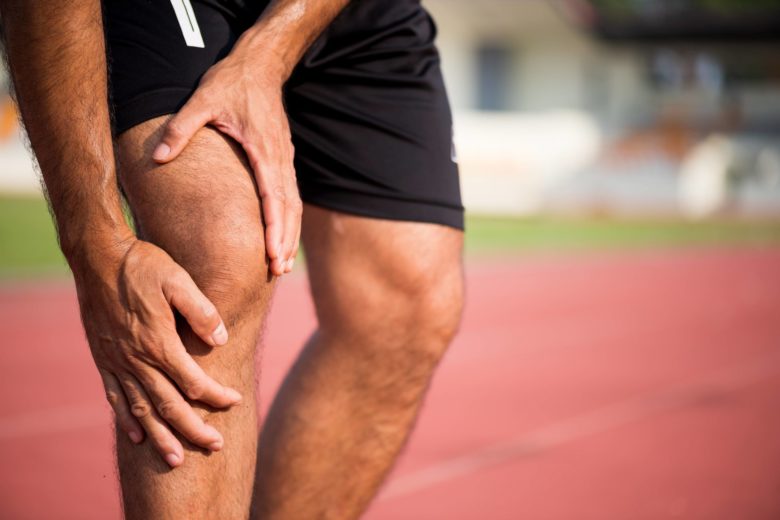
A sports injury can happen to anyone. It’s easy to land wrong and twist an ankle, or reach for the ball in the wrong way and injure your shoulder. When you’re in the zone and focused on the score you’re not paying attention to body mechanics. The repetitive movements that occur in baseball, tennis, golf, and other sports can cause a slow breakdown of muscle and tendons resulting in a chronic injury.
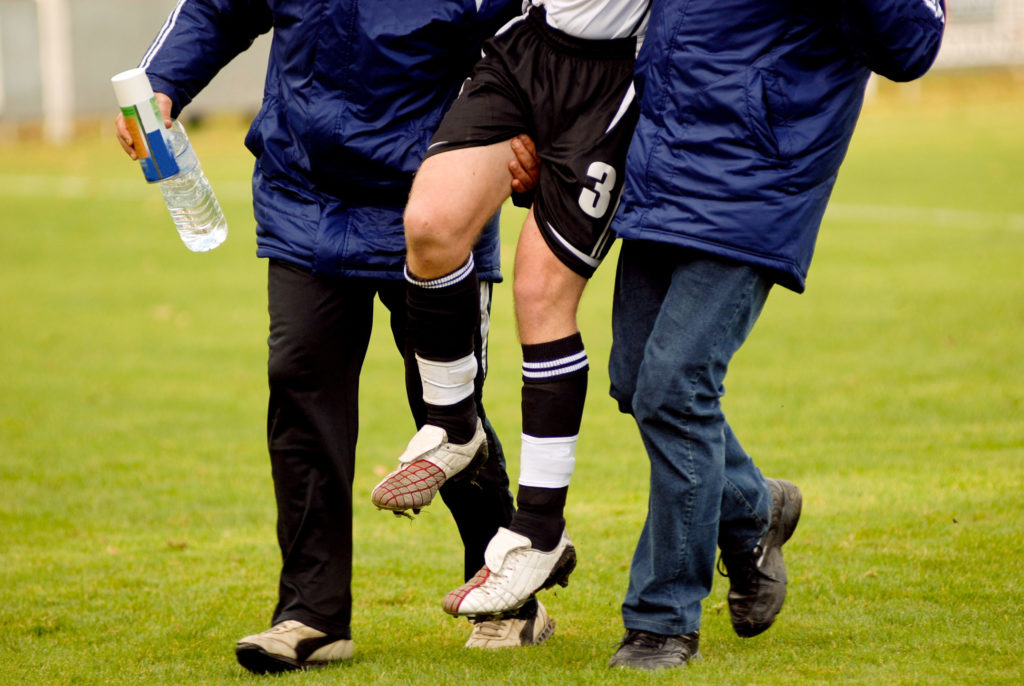
If you’re a Northern Virginia sports enthusiast or active player, you should understand the types of injuries that can occur on the field and the court. Being familiar with the various types of sports injuries will help you know when to contact Town Center Orthopaedics for help.
Acute Sports Injuries
Acute injuries are injuries that happen suddenly. Symptoms of an acute injury include sudden pain and swelling. You might have trouble bearing weight or moving the affected body part.
Some examples of acute sports injuries include:
- Broken bones
- Ligament sprains
- Ligament tears
- Muscle strains
- Meniscus tears
- ACL tears
- MCL tears
- Torn tendons
- Labral tears
- Joint subluxation or dislocations
An ACL tear (a tear to the anterior cruciate ligament) is a painful knee injury. The ACL is a ligament that connects the thigh bone to the shin, keeping the shin in place. If you twist your knee with your foot planted, you can tear the ACL. This injury will cause your knee to become unstable. At the time of the injury, you might feel a “pop” and experience pain. Your knee will probably swell.

Meniscus tears are another painful injury that can happen if you’re a part of Northern Virginia sports. Acute meniscal tears sometimes happen when you change direction too quickly or squat wrong. Tears of the meniscus often happen at the same time as an ACL tear.
Types of Chronic Sports Injuries
Chronic injuries can be caused by overuse and improper form. Unlike acute injuries, a chronic injury happens slowly over time.
Example of chronic injuries include:
- Tendinitis
- Tendon degeneration (tendonopathies)
- Stress fractures
- Bursitis
Rotator cuff injuries happen frequently in sports, where strenuous activity or injuries can cause tendons around the shoulder to rip or separate from the bone. This painful injury may cause a reduced range of motion. Treatment for rotator cuff injuries depends on the type and exact location of the tear. Sometimes medication and physical therapy are enough. In some cases, surgery may be required. Physical therapy is usually performed before and after rotator cuff surgery.
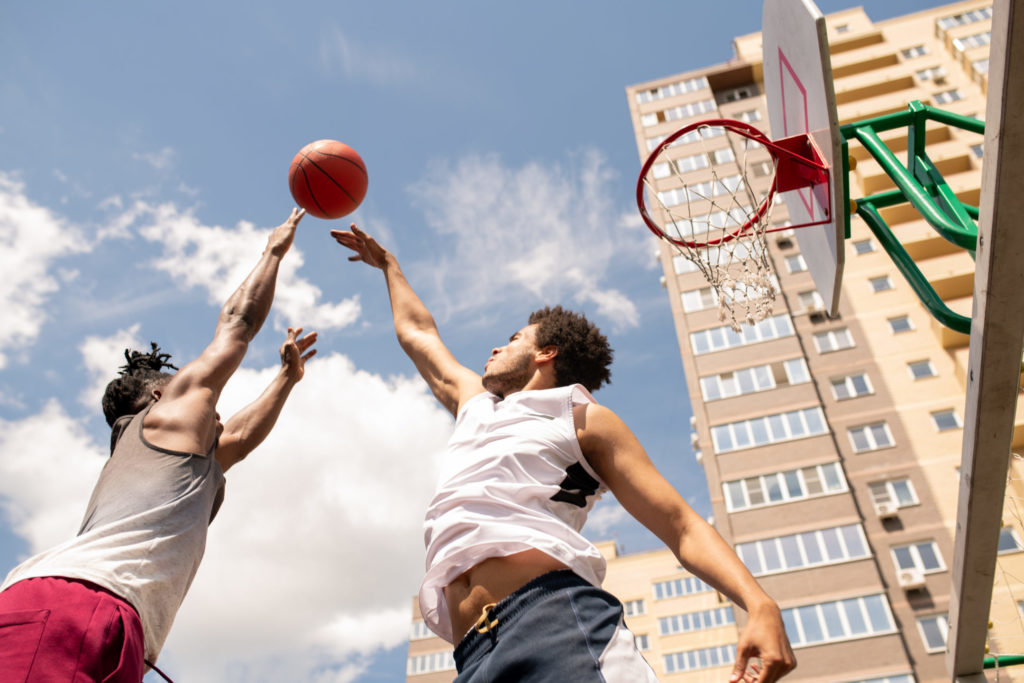
Shoulder instability can be caused by repetitive movements and stress and is common in sports like swimming and gymnastics. Shoulder instability can also occur acutely from trauma – in fact, acute traumatic instability is much more common. If the problem isn’t addressed it can become a chronic problem that interferes with playing the sport you love. Shoulder instability is often treated with physical therapy, although sometimes surgery is necessary.
Repetitive movements, injuries, and even your metabolism and genetics can lead to cartilage damage over time. Symptoms of cartilage damage might include pain, swelling, and the feeling that the joint is “catching.” Town Center Orthopaedics offers several non-surgical ways to treat cartilage damage. Physical therapy, activity modification, and injections are often effective.
If left untreated, a sports injury can not only pull you from the game you love as a Northern Virginia sports player, but it can impact every area of your life.
Don’t let a sports injury sideline you. Contact Town Center Orthopaedics at 703-435-6604 today.
Learn How to Prevent Overuse Injuries in Athletes
Join our Mailing List
TCO provides patients with orthopedic problems the trusted resources and patient-centered advice they need to “Feel Better. Move Better. Be Better.”
© 2024 Town Center Orthopaedics | All Rights Reserved
